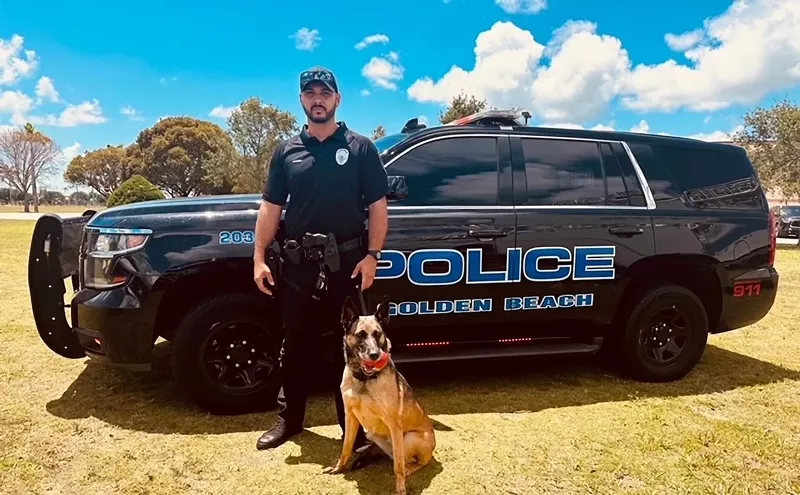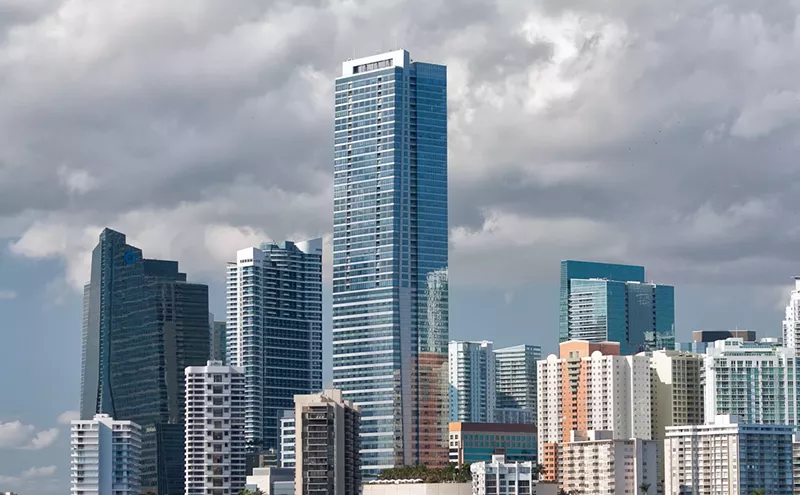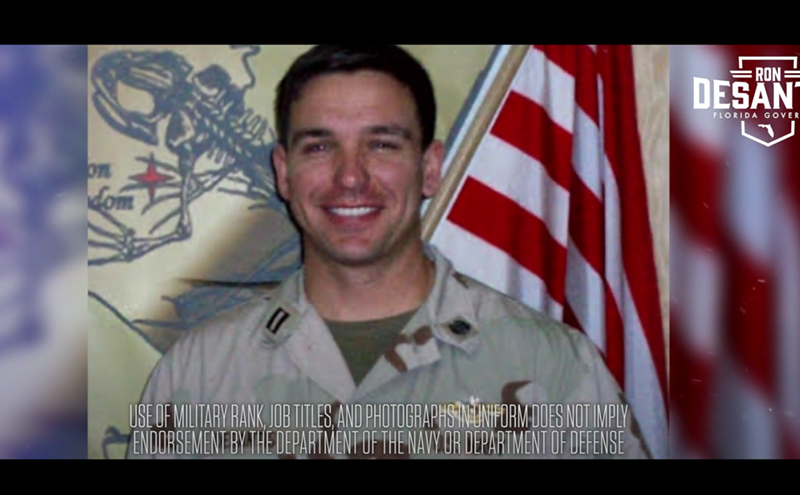First there was the menacing claim broadcast on Spanish-language television that "someone might crack your head like a coconut." Next came three death threats. Finally, as the peace loonies recently piloted their Dodge Ram pickup onto SW Eighth Street, an angry crowd composed mostly of Cuban exiles — spitting and wielding makeshift weapons — ripped away a banner and chased them for blocks.
"It was mayhem," says 50-year-old peacenik Tighe Barry. "I took a right-hand turn, and there were hundreds of crazy people rushing us with poles that had points at the end."
The visit by six members of the antiwar group Codepink this past January 10 through 14 was covered on the inside pages of daily newspapers and by a local TV station or two. (Check out this YouTube video and the group's website, www.codepink4peace.org.) But it deserved much more — because it showed not only titanic ugliness on both sides of the political divide, but also astounding insensitivity toward a rare South Florida hero.
The nastiness was initiated by Medea Benjamin, a slim, brown-eyed 55-year-old former United Nations economist from San Francisco. She and a friend from Los Angeles, Jodie Evans, founded Codepink in 2002 to protest the Iraq invasion. They chose the name as a dig at the Department of Homeland Security's use of — and I'm not making this up — "all those color codes to justify violence."
In the years since, they've gathered 180,000 names on an e-mail list, traveled to Iraq five times, raised $600,000 to rebuild Fallujah, and set up an organization to ensure Iraqis are treated well by U.S. occupiers. All of these are noble achievements.
Less noble is their yippy-dippy style. They organize street protests and, dressed in pink, disrupt government and pretty much any event that annoys them. One member was arrested October 24 after accosting Secretary of State Condoleezza Rice with bloody hands. (Republican U.S. Rep. Ileana Ros-Lehtinen was accidentally tackled by a bodyguard in that scuffle, Barry notes proudly.) Eight of their members are prohibited from entering parts of the U.S. Capitol complex.
Barry, who has long, straggly hair and spooky blue eyes, says he's the group's "token male." Born in Coconut Grove, he left the area in the Eighties, because, among other reasons, Nicaraguan exiles here wouldn't allow him to speak his mind about U.S. involvement in that country. He's been arrested five times for things like disrupting Congress and disorderly conduct. Benjamin claims a dozen similar arrests. "You learn to just sort of drag your feet as they pull you out," Barry explains. "The cops get to know you."
The pair, along with four other Codepink members, began their Miami odyssey January 8. It started when the FBI announced it would publicize its Most Wanted list on billboards in 20 cities, including Miami. Benjamin was visiting Havana in 1997 when several explosive devices — later tied to Miami resident and 80-year-old Cuban wacko Luis Posada Carriles — detonated. So she decided to stage a local protest. "I was there when the hotels were bombed, so I always had a beef with Posada Carriles," she concludes. "I said, 'Let's do a campaign to get him on the Most Wanted list."
So Codepink planned to protest at the most Cuban of local sites, Versailles restaurant in Little Havana, and printed up pink postcards with Posada's pic for the event. The idea was for people to mail them to the FBI, urging the arrest of this "known terrorist ... who is living in Miami."
FBI agents foolishly agreed to meet with the six at their North Miami Beach headquarters. "We asked why the FBI had destroyed documents," recalls Benjamin.
The next afternoon, Benjamin appeared on a Spanish-language talk/comedy show, Arrebatados, on América TeVe (Channel 41). That's where, she recalls, another guest, Enrique Encinosa, clued her in that Codepink might receive, well, a Miami welcome. "He said he was a good friend of Posada Carriles," she recalls. "And I shouldn't be surprised if someone 'cracked my head like a coconut.'"
After the show, she issued a press release. Soon her phone began ringing. In both Spanish and English, callers had choice words. "There were veiled threats. They called me 'Communist c-nt' and threatened to get me. After that show, we started getting nervous."
"Okay, so why didn't you stop then?" I ask her.
"This is a mafia town," Benjamin says. "Everyone is mucked up with each other in a conspiracy to support the violent, right-wing Cubans."
Friday — the day before the storming of Versailles — the group attended a peaceful protest against Guantánamo's prison camp in Doral. Afterward they bought tiaras, pink boas, and other pink clothes at a North Miami thrift store to wear at the Saturday protest. They also learned that several Cuban groups that support Posada Carriles — including Vigilia Mambisa and Alpha 66 — planned a counter-protest.
"Maybe you could have given up then?" I ask again.
"If you let a small group of extremists thwart the political dialogue in your city," Barry says, "you're all terrorists."
On Saturday morning, six Codepink loons got dressed in their low-rent duds and loaded the Dodge Ram with a huge "Wanted" sign featuring Posada in pre-geriatric days. Cuban radio had trumpeted the matter, and more than 200 Posada Carriles backers gathered outside the Little Havana restaurant. They carried signs and wore T-shirts that read "Codepink is a pro-Al-Qaeda terrorist organization"; "Por qué no te callas?" (Why don't you shut up?); and, my favorite, "Codepink is close to red."
The arrival turned into a chase. Some protesters spit on the car. Miguel Saavedra of Vigilia Mambisa screamed irrationally about Posada's heroism. "The FBI wouldn't be protecting [Posada Carriles] if he were an alien terrorist," he added. The mob ripped part of the sign from the back of the pickup. On a delightful YouTube video of the chaos made by journalist Carlos Miller, one guy carrying a Cuban flag is heard proclaiming, "The streets belong to the Cubans." A woman in curlers alleges Venezuelan president Hugo Chávez is paying the peaceniks.
The Codepinkos stopped on a back street several blocks from Versailles. As counter-protesters closed in, a bicycle cop named Andres Valdes intervened, Benjamin recalls. "He said, 'It's not safe. You need to get out of here.'" Police urged people to "use their brains." They sounded their sirens and finally dispersed the angry hundreds. Officers also allowed the peaceniks to stage a press conference in the Miami PD parking lot.
The next day, several Codepink members decided to eat at Versailles, where, Benjamin reports, the food was "mediocre." They were pelted with eggs when they left. Then they camped out in front of Ros-Lehtinen's house. She didn't exit, so they visited her office the next day — where five police cars and even more officers kept a few protesters in check. And on Tuesday, they met with Miami higherups; one called them "provocateurs" — just as several counter-protesters had.
The fracas at Versailles — which received all the news coverage — could have been avoided with better police protection, Barry and Benjamin contend. Indeed, Barry explains, they needed more officers. "Four cops, one bicycle cop, two cars — that's all we got," Barry complains.
This is where I get angry. On the Saturday when only those police officers showed up, Miami Det. James Walker was buried. The decorated member of the domestic violence unit heard gunfire outside his wife's apartment and was shot dead by a thug with an AK-47. Walker was a hero who died at age 30. The cops protecting Codepink could have been paying their respects to a fallen comrade.
Yet the group seems unashamed of its behavior. Codepink plans another protest in Miami on February 9.
"Maybe you want to think twice?" I ask Benjamin and point out the need for more cops on the street in this crime-ridden metropolis.
"We are so gonna do this, and they are so gonna protect us," she responds. "We are doing a service to this town that the people who live here are afraid to perform."












